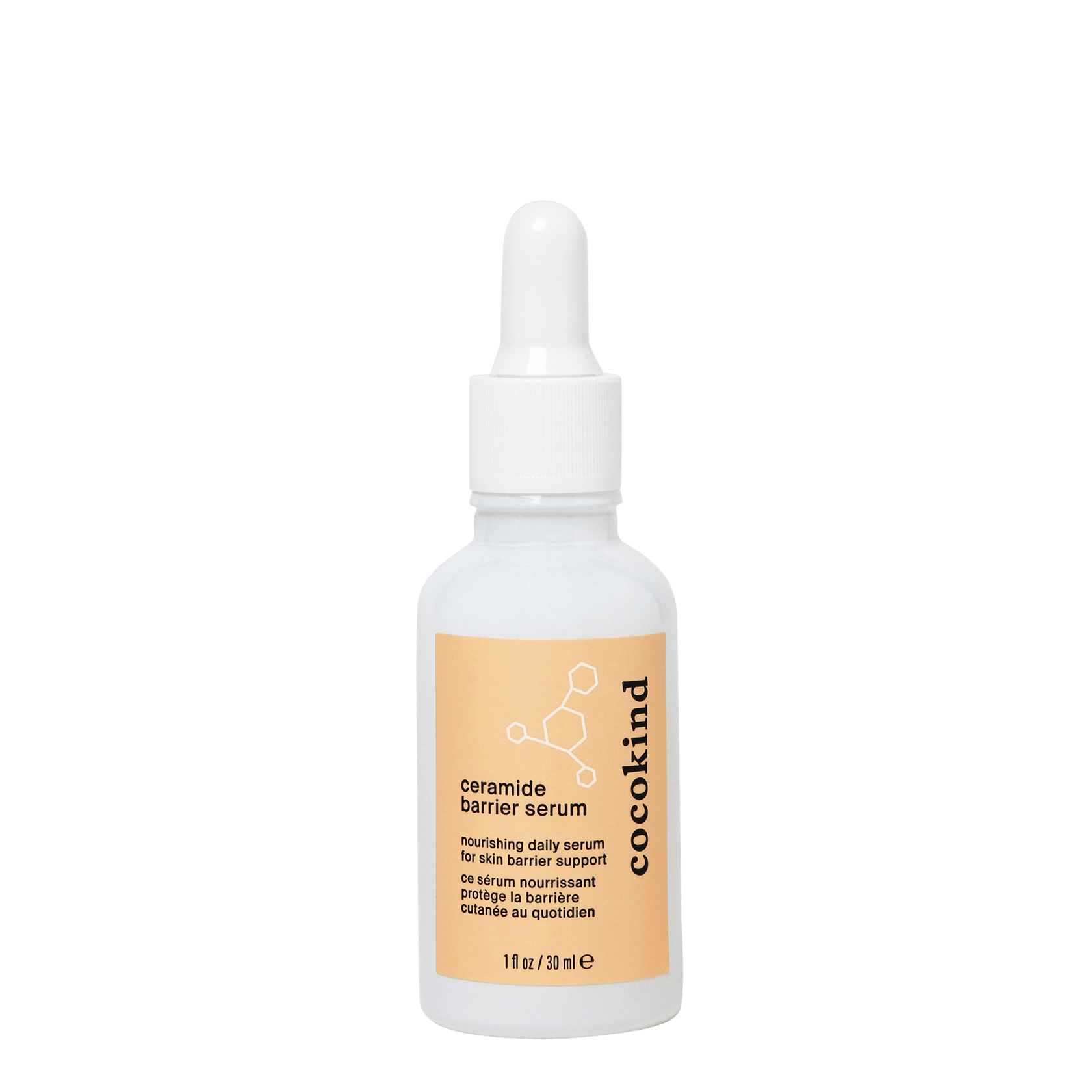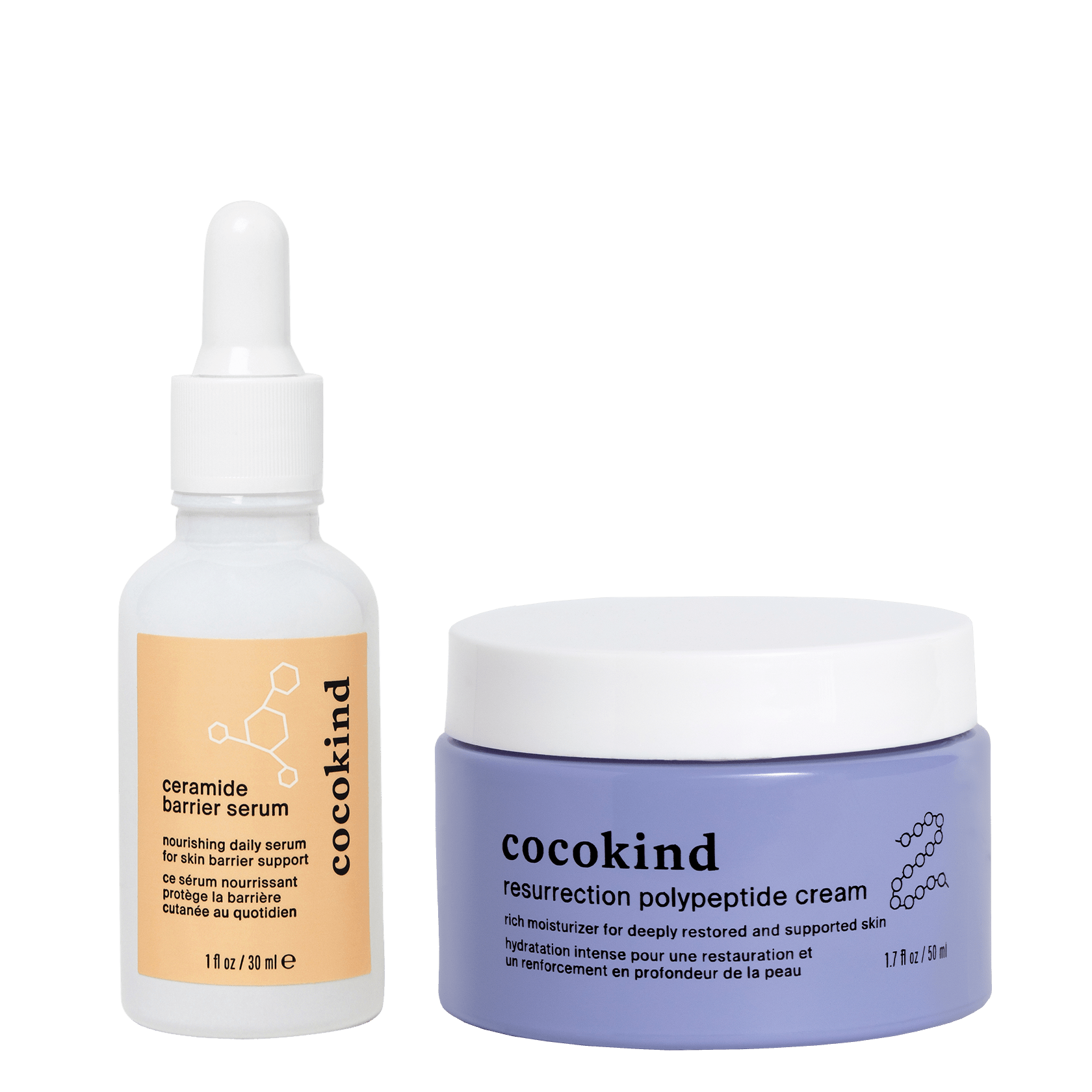If we asked a group of people what the best hydrating ingredient is, most would say hyaluronic acid. It’s ubiquitous in the skincare world and typically thought of as the all-star hydrator, but is it really the most hydrating ingredient? We’re going to break down the benefits of hyaluronic acid and some of its shortcomings. We’re also going to dive into why the ceramide barrier serum can actually replace your need for an additional hyaluronic acid serum, while doing so much more!
What Hyaluronic Acid does
You may know of or use hyaluronic acid, but do you know how it works? Hyaluronic acid is a carbohydrate molecule that’s naturally found within the body. It’s easy to integrate into any skincare routine because it can be used in a wide variety of products and steps like eye creams, serums, or sunscreen. Hyaluronic acid is categorized as a humectant - a substance that pulls and attracts moisture to the skin. When put into various formulations, it can help drive hydration into your skin, reduce the appearance of fine lines, and help soothe irritation!
However, HA has its shortcomings too!
While humectants are great to have in skincare, they’re not able to lock in hydration without the help of additional ingredients or products. Humectants, like hyaluronic acid, need to be paired with an emollient to lock in that moisture. In fact, if you don’t follow up with an emollient, hyaluronic acid can surprisingly be a big cause of dry skin by actually drawing moisture out of the skin, having the opposite effect it’s intended to! Emollients are ingredients like plant oils, ceramides, and shea butter, that help soften the skin while providing a barrier to prevent moisture loss.
Additionally, due to the average molecular weight of hyaluronic acid being quite high, it can be difficult for it to penetrate deep enough to deliver adequate hydration, which is why many formulas will include different (and lower) weights of HA to improve efficacy and delivery.
How Ceramide Barrier Serum works
This is why we feel strongly that you do not need an additional HA serum when you use our ceramide barrier serum; and in fact, the ceramide serum does more than hydrate too!
Our viral hydrating serum is suitable for all skin types, and particularly favored by those with a damaged skin barrier, dry, or sensitive skin. One of the hero ingredients in ceramide serum is a powerful humectant called beta glucan. Beta glucan is a lesser-known humectant that studies have shown to actually hydrate 20% more than hyaluronic acid.*
Not only that, but we also paired beta glucan with a blend of 5 ceramides to lock hydration in and build up that barrier! It helps maintain skin’s natural function, reduce moisture loss, and protect against dehydration, irritation, and signs of aging. When combined with cholesterol and squalane, moisture is sealed in, providing a barrier against external aggressors. This carefully selected mix of ingredients leave skin feeling more soft, plump and comfortable while repairing the skin barrier for immediate and long term benefits.
As for delivery, what’s amazing about topical ceramides is that they are received just as your skin’s naturally-made ceramides. This means you can replenish what you’ve lost, and encourage your skin to make more ceramides!
The conclusion? HA is a good ingredient, but not the best.
Plus, it’s not just one ingredient that makes a difference for your skin, it’s about the overall formula and how the hero ingredients are delivered for maximum efficacy. All in all, hyaluronic acid, although an effective hydrator, does have its faults. HA's ability to absorb into the skin may vary, it doesn’t seal in hydration, and it may contribute to dehydration if not paired with the right ingredients or products. The Ceramide Barrier Serum delivers deep hydration and locks in moisture with powerful humectants and skin barrier supporting ceramides, cholesterol, and squalane. Delivery of this formula is also strong, where your skin absorbs topical ceramides as its own!
Want to add it into your routine? Put it to the test by trying it out for 30 days and if it doesn’t hydrate as well as your current hydrating serum, we’ll give you your money back.
* Based on a clinical testing performed by skincare company JKosmmune, beta glucan at 0.4% is 20% or more moisturizing than hyaluronic acid at 0.4%.

